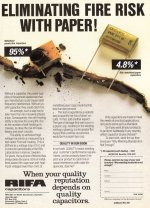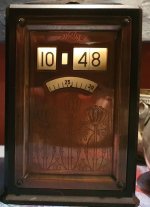Grandcheapskate
Veteran Member
Hi Guys,
I have a P90 computer I do not use very often. The other day I went to boot it up and it went on for about a second and then off. I tried a couple more times with the same result.
Today I took the cover off and unplugged the power supply from the motherboard and the machine stayed on (CPU fan spun) so I figured the power supply was not shorting out. I reconnected the power supply and again the machine only stayed on for a second. Figuring it may be one of the devices I removed the power from the hard drive and booted the machine.
Here's where it gets weird. There was a puff of smoke and a sound like escaping air. But the machine stayed on and got to the point where it asked for a boot disk. I shut the machine down and reconnected the hard drive. I rebooted the machine and everything is working.
I have not checked over the motherboard but my guess is it blew a capacitor. Maybe disconnecting the hard drive allowed enough power to flow to a bad capacitor.
Are there situations where a capacitor can blow and yet the machine continues to work?
Thanks...Joe
I have a P90 computer I do not use very often. The other day I went to boot it up and it went on for about a second and then off. I tried a couple more times with the same result.
Today I took the cover off and unplugged the power supply from the motherboard and the machine stayed on (CPU fan spun) so I figured the power supply was not shorting out. I reconnected the power supply and again the machine only stayed on for a second. Figuring it may be one of the devices I removed the power from the hard drive and booted the machine.
Here's where it gets weird. There was a puff of smoke and a sound like escaping air. But the machine stayed on and got to the point where it asked for a boot disk. I shut the machine down and reconnected the hard drive. I rebooted the machine and everything is working.
I have not checked over the motherboard but my guess is it blew a capacitor. Maybe disconnecting the hard drive allowed enough power to flow to a bad capacitor.
Are there situations where a capacitor can blow and yet the machine continues to work?
Thanks...Joe


